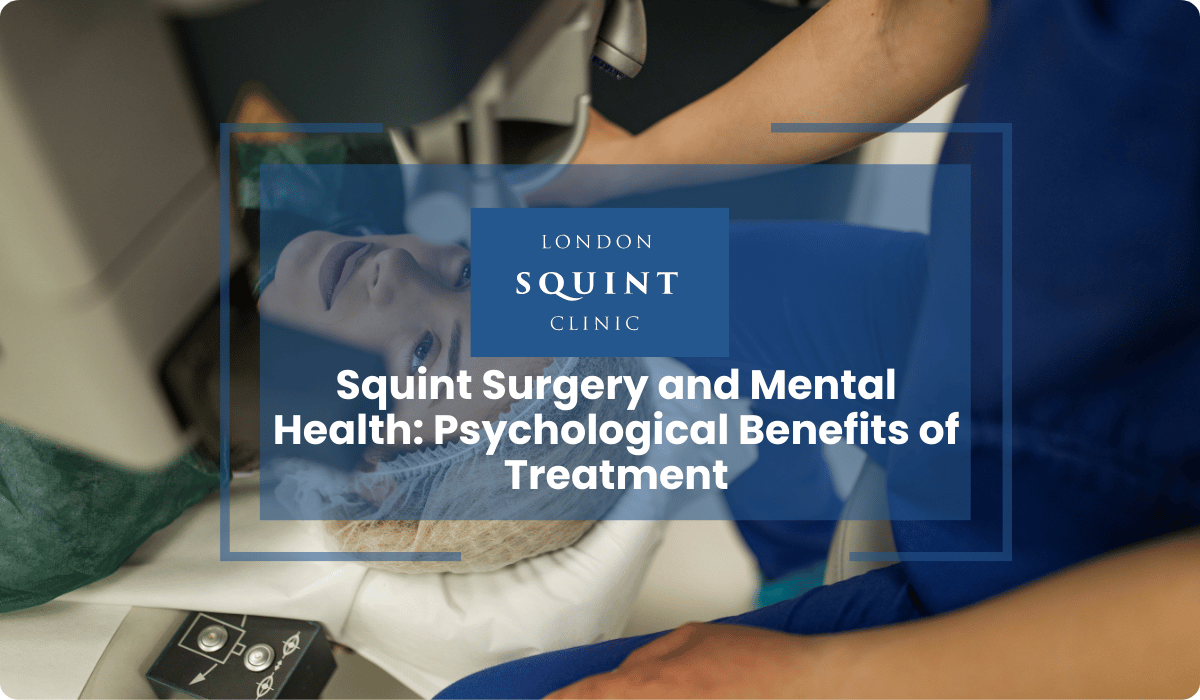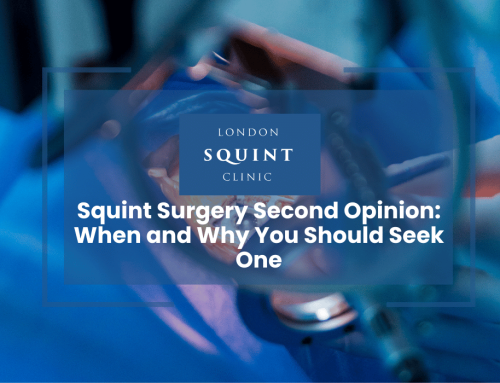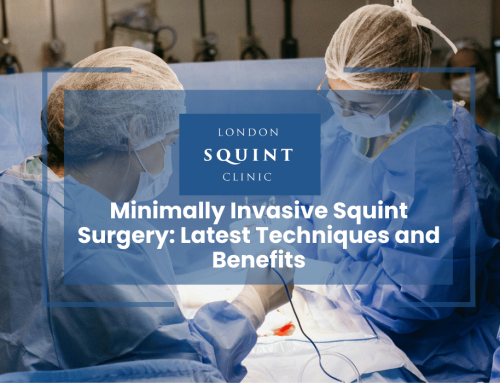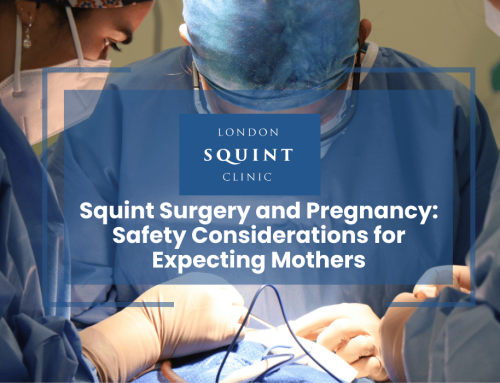Squint Surgery and Mental Health: Psychological Benefits of Treatment
The Psychological Transformation: Beyond Physical Correction
Successful squint correction delivers profound psychological benefits that often surpass the physical improvements in appearance and vision. Research shows that 85% of patients experience significant mental health improvements following treatment, including reduced social anxiety, enhanced self-confidence, and improved quality of life. These benefits manifest differently in children versus adults, with early intervention preventing negative self-image formation while adult correction often resolves long-established psychological burdens. The comprehensive impact extends beyond cosmetic changes to transform social interactions, professional opportunities, and overall emotional wellbeing, creating lasting positive effects that patients consistently describe as life-changing.
Table of Contents
- Understanding the Psychological Impact of Squint Conditions
- How Does Squint Surgery Affect Mental Wellbeing?
- Building Self-Esteem: From Correction to Confidence
- Social Benefits of Squint Treatment Beyond Appearance
- Transforming Quality of Life Through Eye Alignment
- Children vs Adults: Different Psychological Outcomes
- Expert Insights: What Patients Say About Mental Health Benefits
Understanding the Psychological Impact of Squint Conditions
Squint conditions (strabismus) extend far beyond physical vision impairment, often carrying significant psychological burdens that affect daily life. Many patients with squints report feelings of self-consciousness, embarrassment, and anxiety in social situations. Research indicates that individuals with visible eye misalignment frequently experience negative social interactions, including unwanted staring, misinterpretations of where they’re looking, and even prejudice in professional settings.
The psychological impact typically manifests in several ways:
- Reduced self-confidence and poor body image
- Social anxiety and avoidance behaviours
- Depression related to appearance concerns
- Difficulty maintaining eye contact during conversations
- Challenges in forming interpersonal relationships
Studies have shown that up to 85% of adults with untreated strabismus report negative psychological effects related to their condition. The emotional burden can be particularly pronounced in educational and professional environments, where clear communication and confident self-presentation are highly valued. Understanding these psychological dimensions is crucial for comprehensive treatment approaches that address both the physical and emotional aspects of squint conditions.
How Does Squint Surgery Affect Mental Wellbeing?
Squint surgery can have profound effects on mental wellbeing, often creating positive psychological transformations that extend well beyond the physical correction of eye alignment. Clinical studies demonstrate significant improvements in psychological metrics following successful strabismus correction, with many patients reporting enhanced emotional wellbeing within weeks of their procedure.
The mental health benefits typically observed after squint surgery include:
- Reduced anxiety in social situations
- Decreased symptoms of depression
- Improved mood and outlook
- Enhanced feelings of normalcy and belonging
- Reduced psychological distress related to appearance
Research published in the British Journal of Ophthalmology found that successful strabismus surgery led to statistically significant improvements in psychological functioning and social anxiety measures. Importantly, these benefits were observed regardless of whether the surgery improved vision function, suggesting that the cosmetic correction alone provides substantial mental health advantages.
At London Squint Clinic, our comprehensive approach includes pre-surgical psychological assessment to establish baseline emotional wellbeing, allowing us to track improvements following treatment. This holistic perspective ensures we address both the physical and psychological aspects of squint conditions, maximising overall treatment outcomes.
Building Self-Esteem: From Correction to Confidence
The journey from squint correction to renewed self-confidence represents one of the most significant psychological benefits of successful treatment. Self-esteem improvements typically follow a predictable pattern after squint surgery, with patients experiencing gradual but meaningful changes in how they perceive themselves and interact with others.
The self-esteem transformation process often includes:
- Initial relief from successful alignment correction
- Growing comfort with one’s appearance in mirrors and photographs
- Increased willingness to maintain eye contact during conversations
- Reduced self-consciousness in group settings
- Greater confidence in professional and social environments
Clinical research indicates that self-esteem improvements continue to develop for up to 12 months post-surgery, as patients gradually adjust to their new appearance and experience positive social feedback. For many, this represents a profound shift in self-perception after years or even decades of appearance-related anxiety.
Particularly noteworthy is how these confidence improvements often create positive ripple effects in other areas of life. Patients frequently report greater assertiveness in workplace settings, increased dating confidence, and more authentic social connections—all stemming from the fundamental shift in how they perceive themselves following successful squint correction.
Transforming Quality of Life Through Eye Alignment
The overall quality of life improvements following squint correction are often described by patients as transformative. Beyond the specific psychological and social benefits, successful strabismus treatment frequently leads to a generalised enhancement in daily functioning and life satisfaction that affects nearly every aspect of a patient’s experience.
Comprehensive quality of life improvements typically include:
- Enhanced comfort in public spaces and social gatherings
- Reduced mental fatigue from self-monitoring and appearance concerns
- Greater enjoyment of previously anxiety-provoking situations
- Improved sleep and reduced stress levels
- More authentic self-expression and personal identity
Clinical quality of life assessments consistently show statistically significant improvements following strabismus surgery. Using validated measurement tools like the Adult Strabismus Quality of Life Questionnaire (AS-20), researchers have documented substantial gains across psychosocial functioning domains, with many patients reporting that the psychological benefits ultimately outweigh even the visual improvements.
Perhaps most telling is that when surveyed about treatment satisfaction, the vast majority of patients cite quality of life improvements as their primary reason for recommending the procedure to others with similar conditions. This holistic enhancement of daily experience represents the culmination of the various psychological, social, and functional benefits that successful squint correction provides.
Children vs Adults: Different Psychological Outcomes
The psychological benefits of squint correction manifest differently across age groups, with children and adults experiencing distinct patterns of improvement based on their developmental stage and duration of living with the condition. Understanding these differences is crucial for setting appropriate expectations and providing targeted psychological support.
For children, psychological benefits typically include:
- Prevention of negative self-image formation during critical developmental periods
- Reduced vulnerability to bullying and social exclusion
- Normal development of social skills and peer relationships
- Avoidance of compensatory behaviours that might become habitual
- Greater classroom confidence and academic engagement
For adults, the psychological journey often involves:
- Unlearning established negative self-perceptions
- Adjusting to positive social feedback after years of negative experiences
- Reconciling new appearance with long-held self-image
- Overcoming ingrained social anxiety and avoidance patterns
- Rebuilding professional confidence and interpersonal skills
Research indicates that while children typically adapt more quickly to their corrected appearance, adults often report more profound psychological relief, particularly those who have lived with the condition for decades. This difference likely reflects the greater conscious awareness adults have of the social limitations they’ve experienced and the corresponding relief when these barriers are removed.
Expert Insights: What Patients Say About Mental Health Benefits
The most compelling evidence for the psychological benefits of squint surgery comes directly from patients themselves. At London Squint Clinic, we systematically collect patient feedback to understand the full spectrum of mental health improvements following treatment. These firsthand accounts provide valuable insights into the lived experience of psychological transformation.
Common themes from patient testimonials include:
- “I didn’t realise how much mental energy I was spending on my appearance until I no longer had to worry about it.”
- “For the first time, I can look at photos of myself without immediately focusing on my eyes.”
- “Colleagues have commented that I seem more engaged and present in meetings.”
- “My children say I seem happier and more relaxed in social situations.”
- “I’ve started dating again after years of avoiding close relationships.”
Particularly noteworthy is the frequency with which patients express surprise at the extent of psychological improvement. Many report that while they anticipated some emotional benefits, they underestimated how profoundly the correction would affect their overall mental wellbeing and social functioning.
These patient insights highlight an important consideration for prospective patients: the decision to pursue squint correction should take into account not only the physical and visual benefits but also the potential for significant psychological transformation. For many patients, these mental health improvements ultimately represent the most valuable outcome of successful treatment.
Frequently Asked Questions
Does squint surgery improve mental health?
Yes, squint surgery significantly improves mental health for most patients. Clinical studies show reductions in anxiety and depression following successful strabismus correction, with up to 85% of patients reporting enhanced psychological wellbeing. These benefits occur regardless of vision improvement, suggesting that cosmetic alignment alone provides substantial mental health advantages.
How long does it take to see psychological benefits after squint surgery?
Initial psychological benefits typically appear within 4-6 weeks after squint surgery, with patients reporting reduced social anxiety and improved self-confidence. However, the full psychological transformation often develops gradually over 6-12 months as patients adjust to their new appearance and experience positive social interactions that reinforce their improved self-image.
Are the psychological benefits of squint correction different for children and adults?
Yes, children and adults experience different psychological benefits from squint correction. Children typically benefit from prevention of negative self-image formation and normal social development, while adults often experience relief from long-established negative self-perceptions and social anxiety. Adults frequently report more profound psychological transformation, particularly if they’ve lived with the condition for decades.
Can squint surgery improve professional opportunities?
Squint surgery can significantly improve professional opportunities by enhancing workplace confidence, interview performance, and interpersonal communication. Research shows that proper eye alignment leads to more accurate interpretation of social cues and clearer non-verbal communication, which are valuable professional skills. Many patients report more positive responses from colleagues and improved career advancement following treatment.
Will squint correction help with social anxiety?
Squint correction typically provides substantial relief from social anxiety, with most patients reporting reduced anxiety in social situations following successful treatment. This improvement stems from increased comfort with eye contact, elimination of appearance-related self-consciousness, and more positive social feedback. Studies show that social anxiety reduction is one of the most consistent psychological benefits of strabismus surgery.
How do I know if I’m experiencing psychological effects from my squint condition?
Signs you may be experiencing psychological effects from a squint condition include: avoiding photographs or mirrors, feeling anxious in social situations, difficulty maintaining eye contact, self-consciousness about your appearance, and limiting social or professional activities due to appearance concerns. If you experience these symptoms, discussing both the physical and psychological aspects of your condition with a specialist is recommended.
Is psychological support needed after squint surgery?
While most patients adapt well without formal psychological support after squint surgery, some individuals—particularly those with long-standing body image concerns or severe social anxiety—may benefit from professional guidance during the adjustment period. A comprehensive approach that addresses both physical and psychological aspects of recovery can optimize outcomes, especially for patients who have lived with the condition for many years.
Find out if you are suitable for Double Vision Treatment
Not everyone is eligible for double vision surgery.
Find out if you could benefit from this life-changing surgery by taking the quick self-suitability quiz below:
Our most popular procedures

Hello, I’m Nadeem Ali
I’m one of the few eye surgeons in the world with 100% focus on Squint and Double Vision Surgery.
I have 24 years of eye surgery experience, and worked for 13 years as a Consultant at London’s renowned Moorfields Eye Hospital.
In 2023, I left the NHS to focus fully on treating patients from across the world at the London Squint Clinic. You can read more about me here.
There’s lots of information on the website about: squint surgery, double vision surgery and our pricing.
The most rewarding part of my job is hearing patients tell me how squint or double vision surgery has changed their lives. You can hear these stories here.
Mr Nadeem Ali
MA MB BChir MRCOphth FRCSEd(Ophth)






Social Benefits of Squint Treatment Beyond Appearance
While the cosmetic improvements from squint surgery are immediately apparent, the social benefits extend far beyond mere appearance. Successful strabismus correction often transforms interpersonal dynamics in profound ways, creating opportunities for more authentic and comfortable social interactions.
Key social benefits reported by patients after squint correction include:
Research demonstrates that these social improvements significantly reduce social anxiety and avoidance behaviours. A study in the Journal of AAPOS found that 85% of adult strabismus patients reported improved social function following corrective surgery, with many noting that colleagues and acquaintances responded more positively to them without necessarily being aware of the surgical intervention.
These social benefits create a virtuous cycle: as patients experience more positive social interactions, their confidence grows, leading to greater social engagement and further positive experiences. This cycle helps solidify the psychological improvements initiated by the physical correction, creating lasting benefits to emotional wellbeing and quality of life.